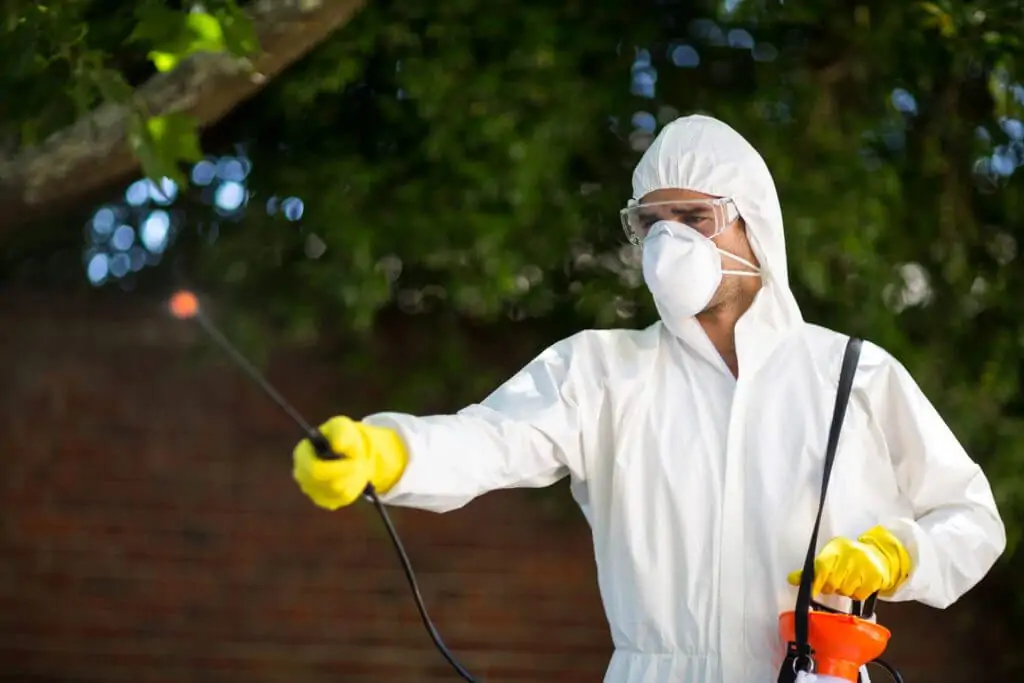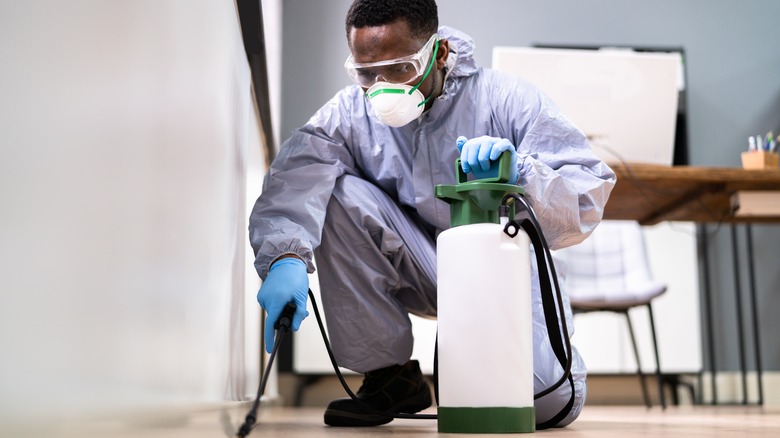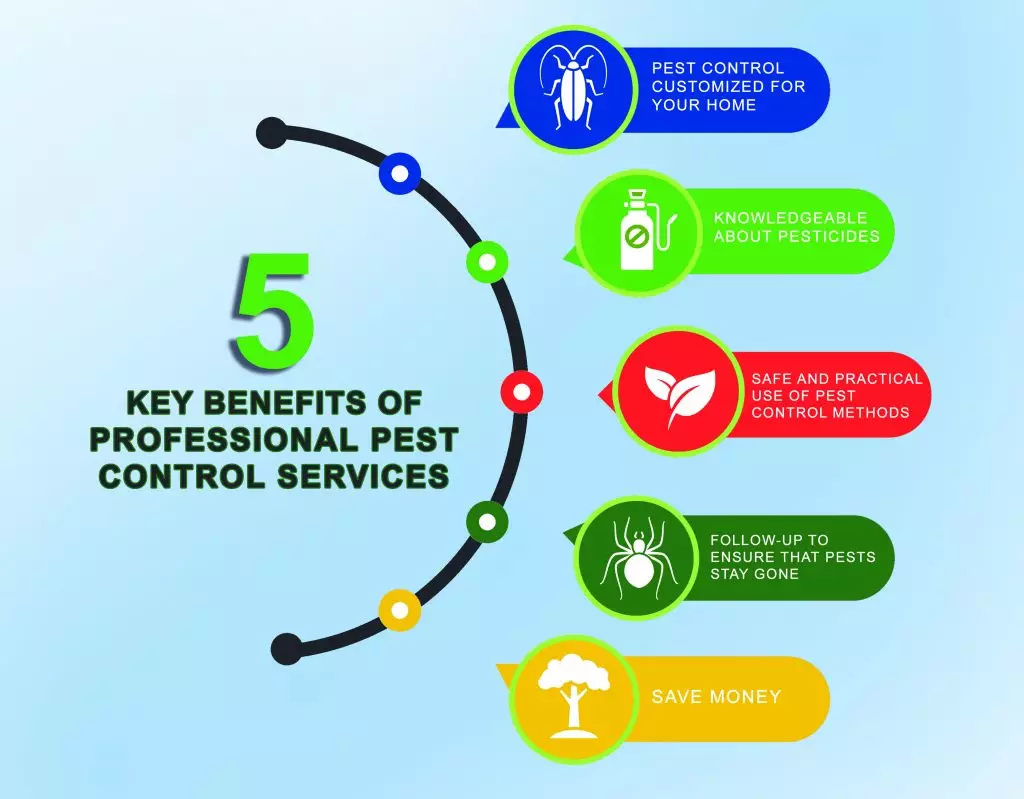Comprehending the Different Methods to Insect Control: A Comprehensive Overview

All-natural Parasite Control Techniques
Employing eco-friendly techniques such as companion growing and organic pest control is important for efficiently managing parasites in agricultural setups. Companion growing entails expanding different crops in closeness to deter bugs, improve nutrient uptake, and improve general crop health and wellness.
Organic bug control entails presenting all-natural killers or pathogens to control pest populations. Ladybugs, for instance, feed upon aphids, managing their numbers without the requirement for chemical pesticides. One more instance is using Bacillus thuringiensis (Bt), a microorganism that targets specific insect parasites while being safe to human beings, animals, and advantageous insects.
These green methods not just decrease the reliance on artificial pesticides but also assist protect biodiversity and soil health and wellness. By including natural insect control techniques into farming practices, farmers can achieve sustainable pest management while decreasing adverse effect on the setting.

Chemical Insect Control Solutions
Along with all-natural parasite control methods, the usage of chemical bug control remedies plays a significant function in successfully taking care of pest populaces in farming settings. Chemical pest control solutions are formulated to target particular insects that may trigger substantial damages to plants. These options usually have artificial chemicals that are made to get rid of parasites quickly and efficiently.
One of the vital advantages of chemical bug control services is their effectiveness in regulating insect infestations widespread. Farmers can apply these services making use of numerous methods such as spraying, airing out, or seed therapy to shield their plants from dangerous bugs, weeds, and illness. Furthermore, chemical pest control solutions are reasonably simple to apply and can provide quick outcomes, helping farmers safeguard their returns and lessen economic losses.
However, it is vital to utilize chemical pest control remedies sensibly to decrease prospective negative effects on the environment, non-target microorganisms, and human health. Appropriate application techniques, adherence to security standards, and routine surveillance are vital to ensure the accountable use chemical parasite control services in farming practices.
Organic Pest Control Approaches
Organic pest control comes close to leverage all-natural predators or virus to manage insect populaces in agricultural settings successfully. This method provides a his explanation lasting and eco-friendly solution to pest administration, lowering the dependence on synthetic chemicals and reducing damage to the setting. One common biological control technique is the intro of all-natural enemies, such as ladybugs or parasitic wasps, to target certain bugs. These killers prey on the pests, helping to manage their populaces normally - pest control clovis.
An additional biological control approach includes making use of microorganisms like microorganisms, fungi, or infections to infect and eliminate insects. Overall, organic insect control approaches offer a lasting and targeted service to pest management in agriculture.
Integrated Pest Management (IPM)
Integrated Parasite Administration (IPM) is a comprehensive technique that integrates different parasite control approaches to successfully handle and reduce pest populations in farming systems. IPM concentrates on long-lasting prevention of bugs through a mix of biological, cultural, physical, and chemical control approaches. By incorporating these different methods, IPM aims to lower dependence on chemical pesticides, reduce environmental impact, and advertise sustainable pest monitoring practices.
One trick element of IPM is making use of organic controls such as this post natural predators, parasites, and pathogens to control bug populaces. This technique utilizes the power of nature to maintain a balance in between pests and their natural opponents without creating injury to the environment.
Additionally, IPM includes cultural techniques like crop turning, cleanliness, and habitat manipulation to produce undesirable problems for parasites and disrupt their life cycles. Physical controls such as obstacles, mulches, and traps are likewise used to prevent parasite infestations.
Mechanical and Physical Parasite Control Strategies
Utilizing non-chemical approaches, such as mechanical and physical insect control strategies, is a vital facet of thorough parasite monitoring approaches, building on the foundation of Integrated Pest Monitoring's all natural method. Mechanical pest control entails the usage of physical obstacles or traps to avoid insects from accessing and harming crops or structures. This approach can consist of strategies like installing screens on windows, making use of row covers in agriculture, or using sticky traps to capture bugs.
Physical insect control methods, on the other hand, concentrate on directly removing parasites through physical methods. For example, making use of heat therapies to eliminate bed pests or vacuuming up insects like crawlers or ants can be efficient means to handle problems without using chemicals. By incorporating these physical and mechanical insect control techniques into an Integrated Pest Administration strategy, specialists and individuals can lower dependence on chemicals while still successfully minimizing and handling pest populaces damages.
Final Thought

In addition to all-natural insect control methods, the use of chemical bug control solutions plays a substantial function in effectively taking care of pest populations in farming atmospheres.One of the key benefits of chemical insect control remedies is their efficiency in regulating bug infestations on a big range.Integrated Bug Monitoring (IPM) is a detailed approach that integrates numerous insect control approaches to successfully manage and reduce pest populaces in agricultural systems.Using non-chemical approaches, such as mechanical and physical parasite control techniques, is a crucial element of thorough pest administration approaches, developing upon the structure of Integrated Parasite Management's alternative technique. By integrating these physical and mechanical pest control techniques into an Integrated Parasite Management plan, specialists and people can reduce reliance on pesticides while still properly handling pest populaces and minimizing damages.